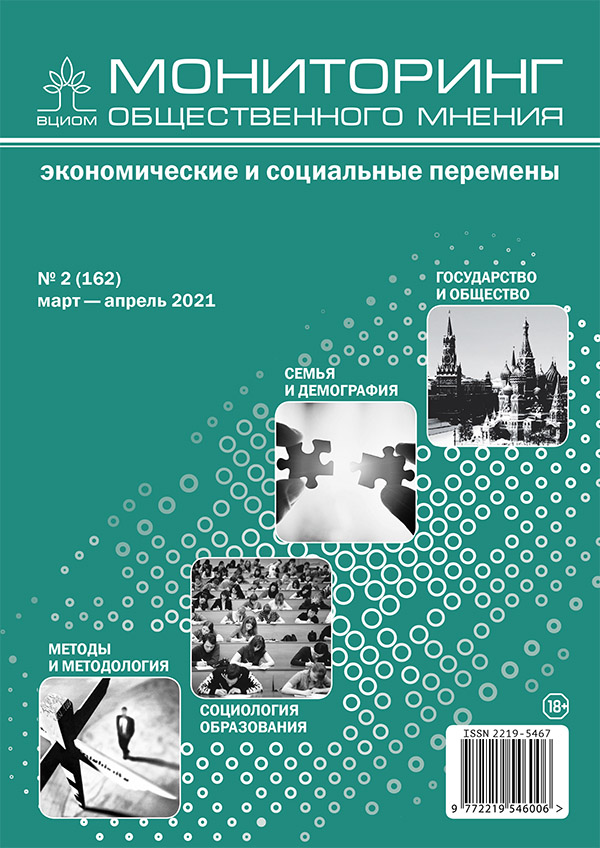The Attitude of the Megalopolis Inhabitants Towards Reproductive Donation (on the Example of Ekaterinburg)
DOI:
https://doi.org/10.14515/monitoring.2021.2.1813Keywords:
infertility, assisted reproductive technologies (ART), reproductive donation, donation of gametes and embryos, perceptions of reproductive donationAbstract
The paper presents the findings of a population survey conducted in the city of Ekaterinburg in 2019 (1300 respondents). The study aimed at measuring the citizens’ awareness about reproductive donation and their attitudes to different types of reproductive donation in general and in connection with the specificity of reproductive material. The data were analyzed in the context of Goffman’s concept of social stigma and the results of similar works by other authors. The majority of the respondents are aware of reproductive donation and have a positive attitude towards it. The level of awareness, as well as the prevalence of positive attitudes, depends on the specificity of the reproductive material. The most well-known and accepted technology is sperm donation, while the most controversial is embryonic donation. More than half of the respondents (52%) consider the embryo a human being, and 47% have a negative attitude towards embryo donation. Perceptions of embryo status are correlated with gender, family history, and religious beliefs. Most of the respondents say that they themselves are not ready to become donors of genetic material, and the main motive of those who become a reproductive donor is financial interest. The study reveals a clear gap between the general attitudes towards donation, when it is perceived in abstract, and situations of personal relatedness to the field of reproductive donation. In the latter case, the attitude towards reproductive donation becomes much more positive. The results of the study strongly suggest that the involvement of third parties in the parenting process is ethically and psychologically ambiguous, and it requires further study together with the position of the involved parties. Since Ekaterinburg, on the one hand, demonstrates trends inherent in capital cities, and on the other, has a clear regional specificity, this data may reflect the current attitude of the population of all large Russian cities towards reproductive donation.
Downloads
Published
How to Cite
Issue
Section
License
Copyright (c) 2020 Monitoring of Public Opinion: Economic and Social Changes Journal (Public Opinion Monitoring) ISSN 2219-5467

This work is licensed under a Creative Commons Attribution-NonCommercial-ShareAlike 4.0 International License.






